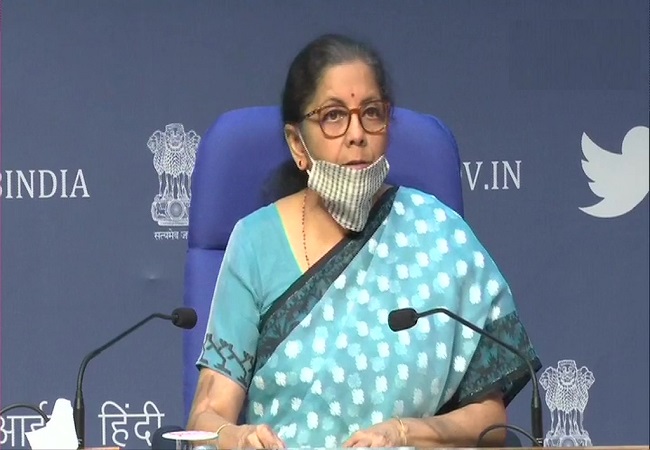Finance Minister Nirmala Sitharaman announcement highlights: First part of the Rs 20 lakh crore economic stimulus unveiled
New Delhi: Finance Minister Nirmala Sitharaman made a slew of big-ticket announcements on Wednesday, providing details of the monetary and fiscal support of Rs 20 lakh crore worth announced by Prime Minister Narendra Modi the previous day. The Finance Minister said the “Atma Nirbhar Bharat Abhiyan” initiative will help in spurring growth and building a self-reliant India, as envisioned by the Prime Minister. “Beginning today, I will lay out details of PM’s Vision over next few days,” said Nirmala Sitharaman.

The Finance Minister said the government will offer bank loans amounting to Rs 3 lakh crore to small businesses as part of measures to combat the damage caused by the coronavirus (COVID-19) pandemic. The Finance Minister also announced a credit guarantee to businesses to avail collateral-free loans from banks, aiming to help 45 lakh businesses by October 2020. The first instalment of the series of presentations by the Finance Minister come at a time when the country remains in a nationwide lockdown with few exceptions to curb the spread of the coronavirus (COVID-19) pandemic. The covid-19 triggered lockdown has pushed an already-ailing economy into a standstill, hampering businesses and landing thousands jobless.

Here are highlights of Finance Minister Atma Nirbhar Bharat Abhiyan package:
•Ministries held detailed talks with industries and PM’s Office on economic package
•The “Atma Nirbhar Bharat Abhiyan” initiative to spur growth and help in building self-reliant India
•Plan based on five important pillars: economy, infrastructure, tech-driven systems, demography and demand
•Prime Minister has laid out a comprehensive vision, which is based on wide and deep consultations with several sections of society
•Beginning today, I will lay out details of PM’s Vision over next few days
•Government to announce 15 different measures
•6 for MSMEs, 2 for employees, 2 for NBFCs and MFIs
•Focus to be on factors of production – land, labour, liquidity and law
•Local brands to be brought to global level
•Focus will be on nurturing local brands as part of this mission
•Global value chain integration part of PM’s plan
•We have capability to build such enterprises
•All schemes rolled out by government since it came to power are driven by reforms
•Direct Benefit Transfer (DBT) scheme helped government deliver money directly to Jan Dhan accounts of the poor
•Rs 52,606 crore transferred to 41 crore Jan Dhan account holders under PM Garib Kalyan scheme
•Refunds of Rs 18,000 crore made to income tax assesses, 40 lakh taxpayers benefitted
•Finance Minister announces collateral-free loans worth Rs 3 lakh crore for MSMEs with turnover up to Rs 100 crore till October 31, 2020
•Move likely to benefit 45 lakh units so they can resume their businesses
•4-year collateral-free loans to be 100% credit-free, with a moratorium for first 12 months
•Definition of MSMEs being changed
•Company with investment of Rs 1 crore, turnover of Rs 5 crore is a micro enterprise under new definition; one with Rs 10 crore investment, turnover of Rs 50 crore a small enterprise; one with Rs 20 crore investment, Rs 100 crore turnover a medium enterprise
•No global tender for government procurement up to Rs 200 crore
•EPF support of Rs 2,500 crore extended for another three months: June, July and August (government to pay employee, employer contribution to EPF accounts)
•Support towards months March, April, May already announced earlier as part of PM Garib Kalyan scheme; that scheme being extended for another three months (June-August)

•3,67,000 organisations to benefit
•Announces Rs 30,000 crore liquidity push for non-banking financial companies (NBFC), housing finance companies (HFC), microfinance institutions (MFI)
•Rs 90,000 crore liquidity for power distribution companies
•Six-month extension for government contractors; builders get more time to finish projects
•Income tax return assessment due date for financial year 2019-20 extended from July 31 and October 31 to November 30; tax audit date from September 30 to October 31


Comments are closed.